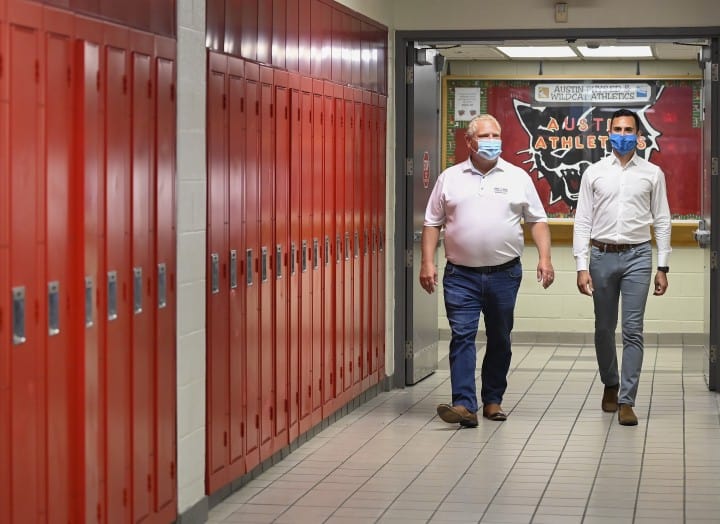Halton board outlines several concerns over COVID-19 back-to-school plan in letter to province
Published August 24, 2020 at 2:26 pm

With two weeks remaining until one of the most highly debated and hotly contested school years, the Halton District School Board (HDSB) trustees published a letter to Ontario’s Ministry of Educatio
With two weeks remaining until one of the most highly debated and hotly contested school years, the Halton District School Board (HDSB) trustees published a letter to Ontario’s Ministry of Education, Stephen Lecce, outlining a number of concerns related to the province’s back-to-back plan amid the COVID-19 pandemic.
“While the health crisis evolves and demands flexibility, now is a time for collaboration and clarity of vision,” read the letter.
The trustees wrote that the board is “greatly concerned” and seeks “clarification regarding a number of items that are critical for back to school planning and ensuring stability and confidence in public education.”
The letter focuses mainly on class sizes and funding as it relates to a safe environment for both students and staff.
In Lecce’s return to school announcement on Aug. 13, he said that the Province’s Medical Officer of Health has signed off on the current return to school direction regarding existing class sizes in elementary. But in the same speech, Lecce also stated that boards have the choice to implement greater distancing between students and smaller class sizes than are in that guidance.
“This is highly confusing and puts our board in a very difficult position,” said the HDSB. “The announcement created an expectation that would be nearly impossible to meet, particularly before September 8.”
“In Halton, over 1200 new teachers would be required to lower elementary class sizes to 15, and additional space would need to be sourced and outfitted, transportation arranged, etc. In addition to a multitude of logistical challenges, and a lack of rental spaces in areas of need, it is anticipated that the cost to do so would be well in excess of the amount our board could access from reserves.”
The Ontario government says school boards are able to utilize a portion of their own financial reserves to implement changes for the upcoming school year. The HDSB says, however, that reserves have been built over a number of years and earmarked for other “high need situations” such as upgrading facilities.
The Ministry of Education said in July that secondary schools in designated school boards will open on an “adapted model”, with class sizes of approximately 15 students, attending on alternate schedules that would include in-person attendance for at least 50% of instructional days.
“Boards interpreted this to mean at least 2.5 days of the week,” which the letter says has caused “much confusion” among parents and staff.
The Ontario government said it would invest $50-million to upgrade and address HVAC systems across the province to ensure proper ventilation in schools. The Halton District School Board contests that “while additional investment is appreciated, with 72 boards in Ontario of varying sizes and needs, it is difficult to say how much would flow to each board.”
For context, the board says the cost to retrofit an older secondary school with a partial air conditioning system has historically cost in excess of $1-million.
A new survey by Leger and the Association for Canadian Studies suggested the majority of parents plan to send their kids to school, but that most would want classes cancelled if there is a new COVID-19 outbreak in their community.
Those results suggested many parents are torn, with 66 per cent of respondents with children saying they were worried about children returning to school but 63 per cent saying they planned to send their kids anyway.
Yet 69 per cent also felt all classes should be suspended and learning shifted back to home if there is a significant increase in COVID-19 cases in their community, with 19 per cent saying classes should continue and 12 per cent unsure either way.
The online survey of 1,510 Canadians over age 18, including 385 parents with school-aged children in their households, took place Aug. 14-16. An internet poll cannot be given a margin of error because it is not a random sample.
– with files from The Canadian Press
insauga's Editorial Standards and Policies advertising





